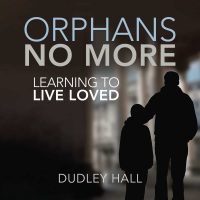In all things I have shown you that by working hard in this way we must help the weak and remember the words of the Lord Jesus, how he himself said, “It is more blessed to give than receive.”Acts 20:35 (ESV)
There is lots of confusion about giving—especially money. The god of mammon likes to stay hidden beneath accusations of foul play. Money-talk is secretive and sensitive. When talk of giving money comes up in church circles, some get antsy. Some even declare that preachers are after everyone’s money and should be shunned. It has worked for a long time, and the result is that the gospel and money have been put at odds.
How different is the clear view of giving from the New Testament? Paul quotes Jesus as saying, “It is more blessed to give than to receive.” He does so in the context of telling why he has worked with his own hands to provide for his needs and those of his team. His reason is that it is more blessed to give than receive. He was not willing to forfeit the joy he received from sacrificial, joyful, and gracious giving.
In the Old Testament (Deuteronomy 26:1-19), God had required his people to bring the first fruits to the priests where they would give testimony of God’s graciousness in saving and sustaining them. The first fruits principle meant that the people were not giving from the surplus but from the core.
They did not wait until the harvest and see how big it was before deciding what to bring to the priest. They gave the first. Even if the harvest was small, they gave the first. This assured that their giving was sacrificial. It would cut into their lives. Surplus giving means that we can continue to live just as before we gave. We can go to the same places and buy what we had planned to buy. Core giving affects our lives. God was unwilling for his people to miss the joy of life-changing giving.
The first fruits principle included a testimony of God’s graciousness. They didn’t just slip an offering in the plate, or mail it to the church office. They brought it openly to the priests who then instructed them to tell their story. They told how God had brought them out of Egypt, fought their enemies, provided food and water, established them in a fruitful land and made them his people. They would not be tempted to think they had worked hard for their crops and deserved to keep what they wanted. God had been the source of their very existence. He had given them everything they had. They were honoring his grace by giving from the core of their produce.
They were actually linking into the very life of God. The joy they had in bringing the first fruits was the kind of joy God has in giving himself for us. Nothing compares to the quality of life that God has. We can touch it as we give the way he gives. It cost Jesus everything to save us. He died naked upon a cross without anything of his own. His robe had no pockets, and it was taken from him. Even the consciousness of his Father left. But it was his hour of glory. There was the joy in the offering. It is astounding that we are given the privilege of sharing in that kind of “giving living.”
Maybe we can better understand why our enemy has hidden this from so many. Underneath the controversy about tithes, offerings, obligations, curses, and blessings there lies the truth of a joy beyond earthly boundaries. It is more blessed to give than to receive, and not because giving makes us receive more. If that alone is the motivation, we miss the whole point. We aren’t giving, we are planting at best, and gambling at worst. Any joy comes from the produce we get. When we give as God does, it is the giving that is the reward.
If you have only given from the surplus, and are not experiencing the joy of sacrificial giving, I challenge you to step into the gospel light. You will love giving because it is God’s way of living.

